Jill Irvine can offer physiotherapy services including:
- Orthopaedics
- Sports Rehab
- Manual Therapy
- Ultrasound Imaging
- Intramuscular Stimulation (IMS)
Ultrasound Imaging:
Physiotherapists use real time ultrasound (RTUS) to examine and treat the deep core muscles that stabilize the spine and pelvis. This is the same technology that is used to screen pregnant mothers. Ultrasound imaging is helpful to observe and assess the timing, sequence, and behaviours of the deep core muscles.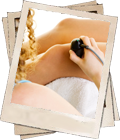
The RTUS machine provides a visual tool to observe if these muscles are working and identify if there is a muscle dysfunction with how the brain is recruiting these muscles (motor control).
The client usually finds it helpful to have this visual feedback when learning how to turn the deep muscles on again. Research shows that retraining and reprogramming these core muscles is needed to gain a full recovery and prevent any reoccurrence of back pain.
Mobilization/ Manipulation:
Manual therapy is a “hands on’’ system of assessing, diagnosing and treating selected neuromusculoskeletal problems.
Manual therapy uses mobilization and manipulation of the musculoskeletal system to restore normal movement and muscle tone.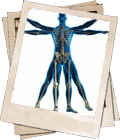
Manipulation is a specialized type of manual therapy technique used to restore normal range of motion. It is a localized, high-speed, controlled trust, which may cause an audible click or popping sensation.
IMS (Intramuscular Stimulation):
IMS (Intramuscular Stimulation) is based on current western research in neurophysiological principles.
IMS is an effective treatment for the relief of injuries caused by over sensitive nerves.
Acute or prolonged repetitive trauma can cause nerves to become irritated. Irritable nerves cause the muscles they supply to shorten and stay contracted. These shortened muscles can cause pain, as well as, pull on tendons, compressing joints and nerves. This can lead to common conditions such as tendonitis, repetitive strain injuries, and chronic pain syndromes.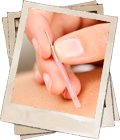
IMS involves inserting fine needles into shortened muscles. The needle insertion changes the electrical energy in the muscle and stimulates the muscle to relax and returns to its normal length. The insertion of the needle also causes the release of a blood platelet growth hormone, which initiates and helps the healing process.
These physiological changes make IMS a valuable treatment for both acute and chronic injuries.
Medical Therapeutic Yoga:
Medical Therapeutic Yoga is the practice of yoga in medicine and rehab settings by a licensed health care professional who is completing or has graduated from the Professional Yoga Therapy Institute program.
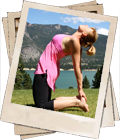
What is PYTI?
PYTI is the longest standing international model for clinical and public health education in yogic medicine for licensed medical providers. Professional Yoga Therapy Institute has a fully developed and field-tested curriculum, which is being used in post-graduate coursework at masters and doctoral programs through universities in North America. PYTI teaches the Biopsychosocial Approach that promotes self-empowerment and healing by treating the whole body and mind. Medical yoga therapy can help you with:
- Prevention or management pain
- Increase range of motion, flexibility, strength, endurance, body awareness, balance and coordination
- Management of stress and development of life-long healthy habits
- Integrated rehab resources proven to support longevity
- Normalize blood pressure and weight,
- Improved focus, mental ability, concentration and sleep
- Decreased risk of chronic disease
MEDICAL THERAPEUTIC YOGA uses a holistic approach:
- Patients are assessed to identify neuromusculosketal deficiencies that have developed due to muscle imbalances, changes in joint mobility or motor recruitment patterns.
- Medical yoga therapy uses specific release techniques to help align the body first and then specific poses are given to help connect and move the body in a way that produces optimal movement. Medical Yoga Therapy uses manual therapy, postures, breathing exercises, and relaxation techniques to retrain optimal movement patterns.
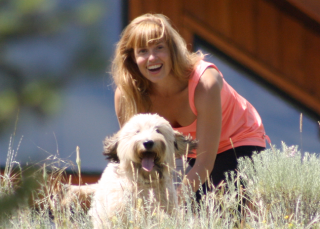






What customers have said